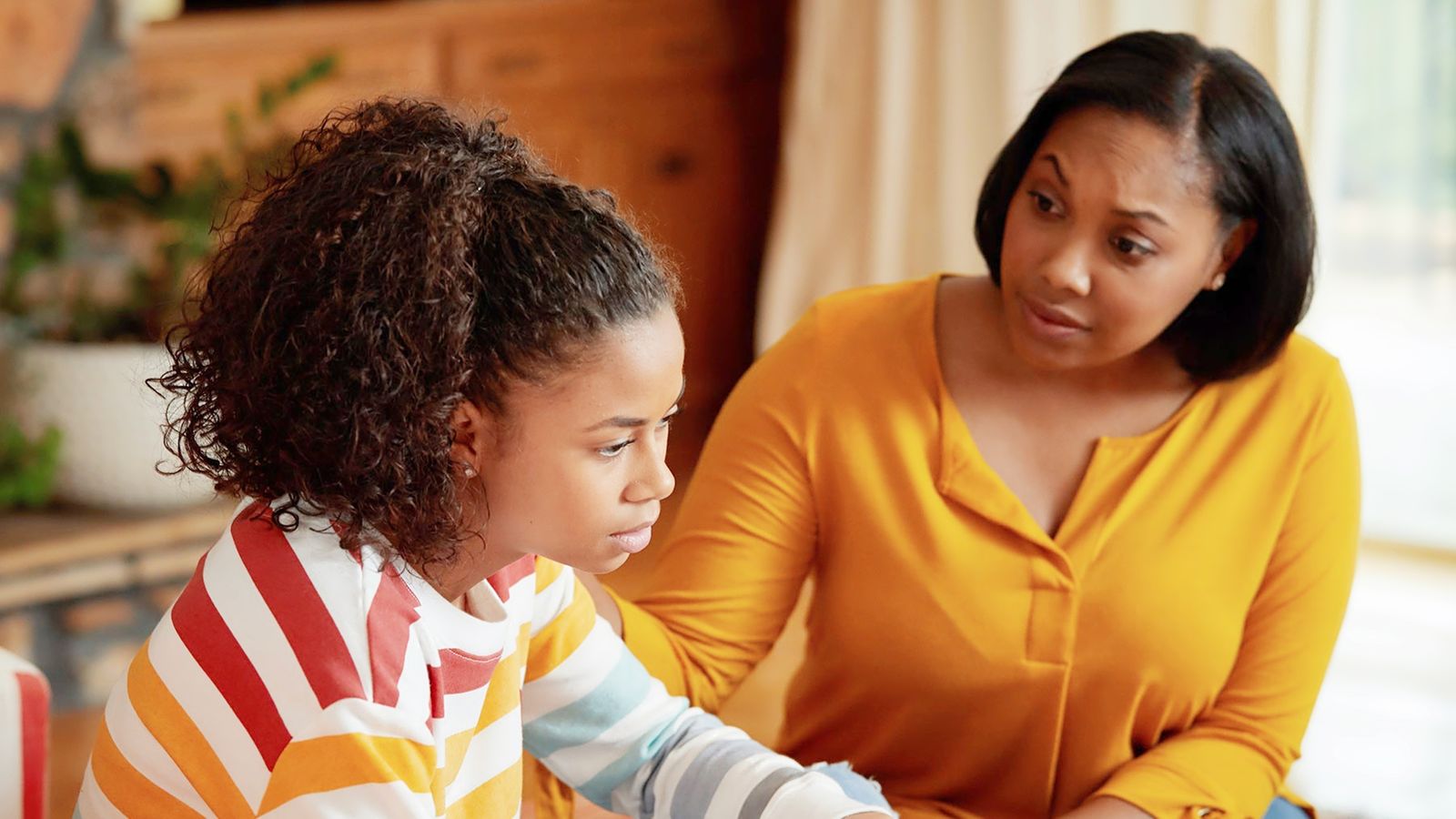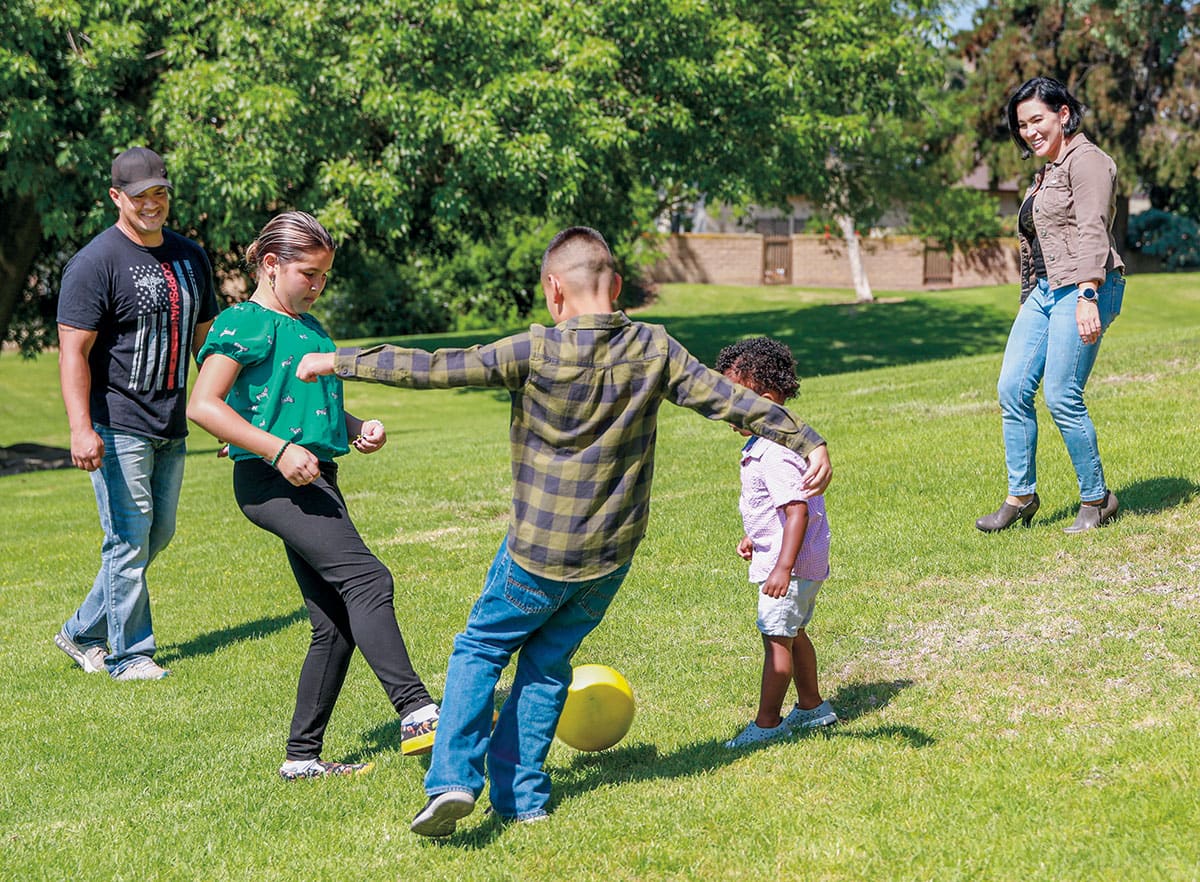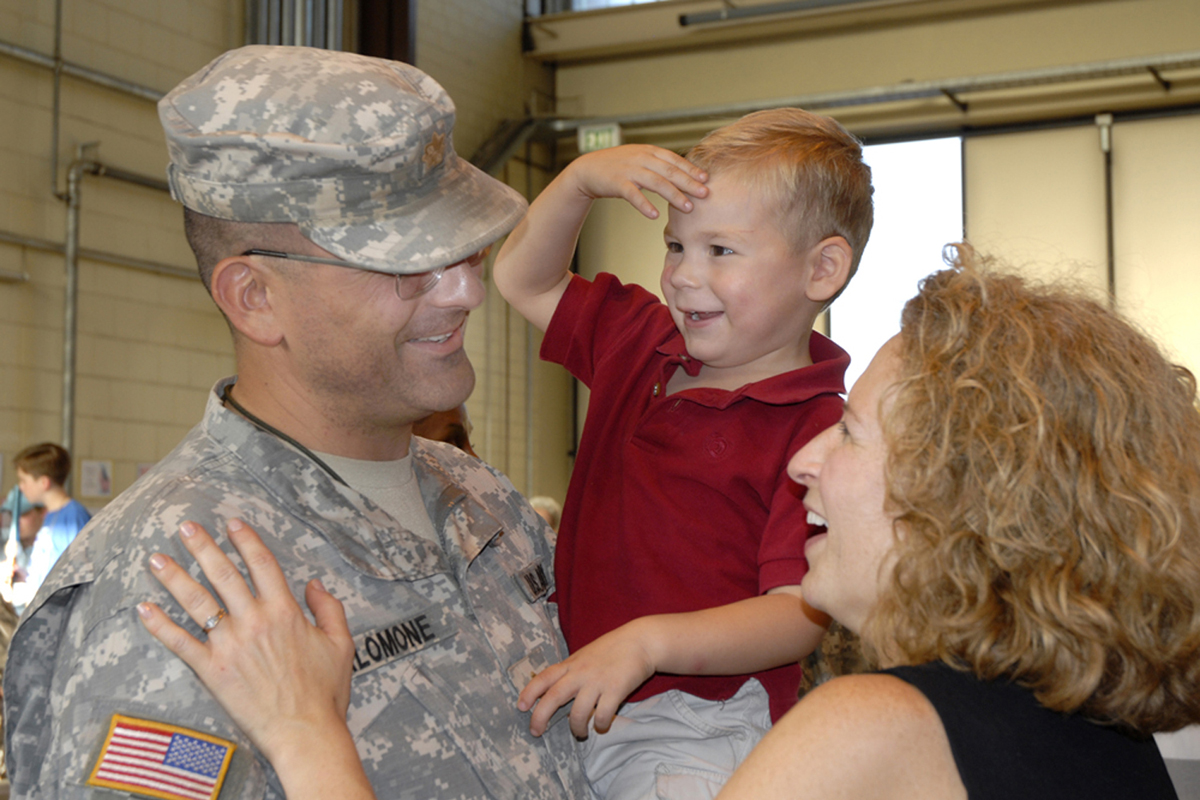10 Tips: Navigating Deployment Impact on Kids
Managing deployment’s impact on your kids demands prioritizing routines, like consistent schedules for normalcy. Encourage open talks to support their feelings. Be there to comfort and reassure them; their emotions are valid. Engage kids in preparations and create a countdown for togetherness. Explore coping mechanisms together to handle challenges. Consider support groups to connect with peers facing similar situations. Post-deployment, plan family reunions and establish new routines for stability. An emotional adjustment period may need support and patience for readjustment. By proactively embracing these strategies, you can help your children handle deployment’s impact with resilience and care.
Key Takeaways
- Establish consistent routines for stability and comfort.
- Encourage open communication to build trust and security.
- Provide emotional support by listening and reassuring.
- Involve kids in preparations and family activities.
- Create a deployment countdown for togetherness and anticipation.
Establishing Regular Routines

To help your children navigate the impact of deployment, prioritize establishing consistent daily routines. Morning rituals can set a positive tone for the day, offering stability during uncertain times. Encourage simple routines like having breakfast together, getting dressed, and discussing plans for the day. This can create a sense of normalcy and provide comfort to your children.
Additionally, bedtime routines are essential for promoting a sense of security and aiding in restful sleep. Consistency in bedtime rituals such as reading a story, brushing teeth, and saying goodnight can help your children feel safe and cared for, even when a parent is away.
Bedtime routines also provide valuable bonding time and can be a source of comfort for both you and your children.
Encouraging Open Communication

Establishing regular routines can also serve as a foundation for encouraging open communication with your children during deployment. Healthy communication is key to helping your kids navigate this challenging time. Encourage them to share their thoughts and feelings, and actively listen to what they’ve to say. Building trust through open dialogue will help strengthen your relationship and provide them with a sense of security.
It’s important to create a safe space where your children feel comfortable expressing themselves. Let them know that it’s okay to feel a range of emotions and that you’re there to support them through it all. Encouraging them to talk about their worries or fears can help alleviate some of their anxieties.
Regular check-ins can also be beneficial in promoting healthy communication. Whether through video calls, emails, or letters, staying in touch regularly can reassure your children that you’re always there for them. By fostering open communication and building trust, you can help your kids feel more secure and supported during your deployment.
Providing Emotional Support
Encouraging your children to express their emotions openly and providing them with a supportive environment is vital for providing emotional support during deployment.
During this challenging time, your kids may experience a range of feelings, from sadness and anxiety to confusion and even anger. It’s essential to be there for them, offering listening ears and comforting hugs whenever they need it.
Creating safe spaces where your children feel comfortable sharing their emotions without judgment is key. By building trust relationships, you can help them navigate their feelings and uncertainties more effectively.
Remember, your presence and willingness to listen can make a significant difference in how your children cope with the emotions that arise during deployment. Be patient, show empathy, and reassure them that their feelings are valid.
Together, you can work through this difficult time as a supportive and united family.
Involving Kids in Preparations

Involving your kids in preparations for deployment can help them feel more connected and prepared for the upcoming changes. It’s essential to include them in discussions about the deployment, explaining why it’s happening and what to expect. This involvement can provide a sense of security and understanding, easing anxieties they may have.
Family bonding activities such as creating a deployment countdown calendar together or packing bags as a team can make the process feel more like a joint effort. Let your kids contribute ideas on how to stay connected during the deployment, like making a family photo album or writing letters to each other. This involvement not only strengthens family bonds but also gives them a sense of control in a situation that can feel overwhelming.
Remember to keep communication lines open and encourage your kids to express their feelings throughout the preparation process. Your support and involvement will go a long way in helping them adjust to the upcoming changes.
Creating a Deployment Countdown
Start the countdown to deployment by engaging your kids in creating a special calendar together. This activity can be a fun way to involve them in the process and build excitement for upcoming events.
Consider incorporating deployment celebrations throughout the countdown to keep spirits high. From small gestures like themed meals to bigger activities such as a family day out before the deployment, creating memorable moments can help ease the change.
Encourage your children to get creative with countdown crafts, where they can make personalized decorations or a special countdown journal to track the days until deployment. This not only gives them a sense of ownership over the process but also serves as a tangible reminder that you’re all in this together.
Connecting With Other Military Families

Connecting with other military families can provide you with a valuable support network during deployment. Being able to relate to others who understand the unique challenges you face can offer comfort and a sense of belonging.
One way to connect with other military families is by joining support groups. These groups can be a safe space to share experiences, seek advice, and offer each other encouragement.
Additionally, organizing virtual playdates with other military families can help your children feel connected and supported during this challenging time. Setting up video calls where kids can interact, play games, or do activities together can provide a sense of normalcy and fun despite the distance.
Addressing Fears and Concerns
When your children are feeling anxious about deployment, it’s important to offer them comfort and reassurance.
Encouraging open dialogue with your kids can help them express their fears and concerns in a safe space.
Comforting Anxious Children
Addressing and easing your child’s fears and concerns about deployment is essential in helping them navigate this challenging time with more confidence and resilience.
When your child feels anxious, using calming techniques such as deep breathing exercises or visualization can help them relax. Providing parental reassurance by letting them know that they’re loved and supported can also bring comfort during uncertain times.
Engaging your child in distraction activities can help take their mind off worries. Encouraging them to participate in hobbies they enjoy, playing games, or reading together as a family can create moments of joy and bonding.
Open Dialogue With Kids
Ease the worries of your child by fostering open dialogue where they can freely express their fears and concerns about deployment. Parent-child conversations are essential during this time. Make sure to have emotional check-ins regularly to gauge how your child is feeling. Create a safe space for these discussions, allowing them to open up without fear of judgment.
When engaging in these conversations, tailor them to be age-appropriate. Younger children mightn’t fully grasp the concept of deployment, so keep explanations simple and reassuring. For older kids, explore further into the details while still providing comfort and support.
Encourage your child to ask questions and share their emotions openly. Validate their feelings and let them know that it’s okay to feel scared or worried. By fostering this open dialogue, you’re helping them process their emotions and concerns in a healthy way.
Utilizing Resources for Children
Explore the various support services available to assist children during times of deployment, ensuring they’ve access to the resources needed for emotional well-being.
Child therapy can be incredibly beneficial for kids facing the challenges of deployment. Trained therapists can provide a safe space for children to express their feelings, develop coping strategies, and work through any anxieties or fears they may have.
Additionally, support groups offer children the opportunity to connect with peers experiencing similar situations. Being part of a group where they can share experiences, offer support, and feel understood can be incredibly comforting for children during times of deployment. These groups often provide a sense of community and belonging that can help alleviate feelings of loneliness or isolation.
Exploring Coping Mechanisms Together

During times of deployment, it can be helpful for families to explore coping mechanisms together as a way to navigate the challenges that may arise. Family bonding plays an essential role in supporting each other through difficult times.
Encouraging open communication within the family can foster a sense of togetherness and create a safe space for everyone to express their feelings.
Stress management techniques such as deep breathing exercises, mindfulness activities, or engaging in physical activities together can help alleviate tension and promote a sense of well-being for both parents and children.
Setting aside dedicated time for family activities, whether it’s playing games, going for walks, or simply having heartfelt conversations, can strengthen the family unit and provide a sense of normalcy during periods of deployment.
Reuniting and Readjusting Post-Deployment
Now that your loved one is back home, it’s important to plan a special family reunion to celebrate being together again. Supporting each other through this emotional change is key to readjusting post-deployment, so guarantee open communication and patience.
Establishing new routines as a family can help create a sense of stability and normalcy after the challenges of deployment.
Family Reunion Planning
Upon returning from deployment, planning a family reunion is essential for reuniting and readjusting post-deployment. Reuniting with loved ones after being away can be both exciting and challenging.
To make the adjustment smoother, consider organizing family activities that everyone can enjoy together. These activities can help create new memories and strengthen the bond between family members.
When planning the reunion, take into account travel plans and schedules to make sure that everyone can participate. Whether it’s a weekend getaway or a simple gathering at home, the important thing is to spend quality time together.
Discuss with your family members what they’d like to do during the reunion to ensure everyone feels included and valued.
Remember that settling back home can take time, so be patient with yourself and your family. Encourage open communication and express your feelings to each other.
Emotional Transition Support
Returning home after deployment can bring about a mix of emotions and adjustments as you navigate reuniting with loved ones and settling back into daily life. Reuniting with your children after being away can be both joyful and challenging. Children may have a range of reactions to your return, from excitement to confusion or even anxiety. Your parental presence and support during this time are essential. Be patient with your children as they readjust to having you back home.
If you notice signs that your child is struggling with the emotional change post-deployment, child therapy can be a valuable resource. Child therapists are trained to help children express their feelings, navigate changes, and develop coping strategies. Seeking professional support can provide a safe space for your child to process their emotions and adjust to the new family dynamic.
Remember that every child’s emotional journey post-deployment is unique, and it’s okay to seek help when needed. Your understanding and proactive approach can support your child through this adjustment period, strengthening your family bond in the process.
Establishing New Routines
Adjusting to new routines after returning from deployment can be a significant change for both you and your children. As you reunite and readjust post-deployment, establishing consistent bedtime routines and morning rituals can provide stability and comfort for your kids. Setting up a predictable homework schedule and mealtime structure can help create a sense of normalcy and security after the adjustment of deployment.
Encourage open communication with your children about the new routines and involve them in the decision-making process when possible. This can empower them and make the adjustment smoother.
Be patient and flexible as you all adapt to the changes, understanding that it may take time for everyone to settle into the new way of doing things.
Remember to prioritize self-care and quality family time amidst the adjustments. Building these new routines together can strengthen your bond and create lasting memories.
Frequently Asked Questions
How Can I Address My Child’s Feelings of Abandonment During Deployment?
You can address your child’s feelings of abandonment during deployment by increasing parental involvement and providing emotional support. Communicate openly, create routines, validate their emotions, and assure them of your love and commitment.
What Are Some Creative Ways to Include My Child in the Deployment Preparations?
To involve your child in deployment preparations, try deployment craft activities like making a countdown calendar or care package decorations. Establish deployment family rituals such as writing letters together or creating a special goodbye tradition.
How Can I Help My Child Cope With the Fear of the Unknown During Deployment?
You can help your child cope with the fear of the unknown during deployment by using coping techniques like deep breathing or journaling, communication strategies such as open discussions, providing emotional support, and creating deployment rituals together.
Are There Specific Resources Available to Support Children of Deployed Parents?
You can find a range of resources to help your child during deployment. Support networks offer connections with other kids in similar situations, while counseling services provide professional guidance through challenging emotions.
What Are Some Strategies for Easing the Transition When Reuniting Post-Deployment?
When reuniting post-deployment, engage in reintegration activities to reconnect, use open communication techniques to share experiences, provide emotional support to ease the adjustment, and prioritize family bonding to strengthen relationships and create lasting memories together.
Conclusion
Remember, managing deployment impact on kids can be challenging, but with the right tools and support, you can help them through this difficult time.
By establishing routines, encouraging communication, and addressing fears, you can provide the emotional support they need.
Remember to utilize resources, explore coping mechanisms together, and prepare for reuniting post-deployment.
Your efforts will make a difference in helping your children manage this challenging time with strength and resilience.
You’ve got this!

Chad Adan Kace, a young dad from Vermont, shares his parenting journey with a touch of humor and lots of love. Father to a lively baby, he explores the joys and challenges of fatherhood through his stories.







